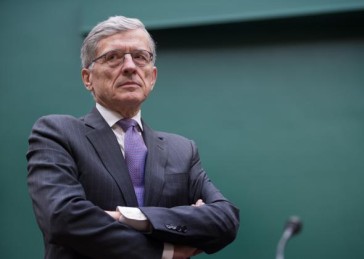As I mentioned here a couple of weeks ago, a variety of factors is breaking down the current television distribution system, specifically endangering the future of cable and satellite providers, known as MVPDs (multichannel video programming distributors). To those factors you can now add the FCC’s decision to reclassify “over the top” (OTT) video providers (meaning, online services) as MPVDs for certain purposes.
Specifically, the FCC decided to treat OTTs like MVPDs in terms of allowing them the same access to TV programming as is given to cable and satellite providers. The vote was significant in that all Democrats voted yes and the two Republicans voted concurrence, meaning they agree with the decision to treat OTTs like MVPDs in terms of guaranteeing equal access to programming, but suggesting that they do not consent to treating the two systems alike in all other ways.
Specifically, Multichannel News reports that the Republican commissioners are concerned about the likelihood of the FCC using the reclassification as a Trojan Horse for imposing new regulations on OTTs:
According to source familiar with Republican Commissioner Ajit Pai’s thinking on the itema and his reason for concurring rather than voting yes, he supports asking whether online video distributors should be classified as MVPDs, an issue that has been in front of the commission thanks to the Sky Angel petition, but believes that the tentative conclusion that some are MVPDs–linear OVD’s mimicking traditional MVPDs–is premature. He is said to be worried about increasing regulation on Internet video.
Clearly, FCC Chairman Tom Wheeler sees this decision as promoting greater competition in the TV-providing industry, as that is one of his evident obsessions. He has in fact openly stated that he hopes to encourage development of OTTs to compete with MVPDs. This latest decision is part of that effort.
Multichannel News likewise sees this as part of a deliberate long-term strategy on Wheeler’s part:
The FCC signaled in the Comcast/NBCU deal that it expected over-the-top video to become a competitor to traditional MVPDs going forward and, therefore, included conditions requiring the company to make its programming available to OTT providers on nondiscriminatory terms and conditions.
The Wall Street Journal further suggests that Wheeler believes the rise of OTTs will help break the program providers’ practice of bundling, charging inflated prices for packages of programs that MVPDs have to buy in order to get one or two desired channels. Bundling is one of the things that has driven cable and satellite prices ever-higher in recent years.
As I noted in the article cited above, however, there is a huge disparity between the costs of operating an OTT versus an MVPD: cable and satellite providers build and pay for their own distribution infrastructure, whereas OTTs get free infrastracture. (Although some of the biggest OTTs pay additional compensation to the internet service providers who function as their distribution mechanism, the Obama administration is trying to stop that salutary trend by imposition of net neutrality.)
That puts cable and satellite providers at a huge disadvantage vis a vis OTTs, and this decision by the FCC to force program providers to treat OTTs the same as MVPDs is another blow against the economic viability of the latter. It will likely increase competition and provide benefits to consumers in the short run, but within a few years the FCC’s latest decision is likely to end up reducing competition and harming consumers by driving MVPDs out of business.
At that point, of course, the FCC will surely be tempted to judge the OTTs as excessively powerful and impose a new round of regulations to fix what its current rules will have broken. The more television changes, the more the FCC stays fundamentally the same.



Thanks for the question, Bradley. I don’t know the exact answer to your question. Why don’t you just read The Conscience of a Conservative and get back to us with the answer?
So why didn’t Goldwater run in 1964 on a platform of abolishing the FCC?